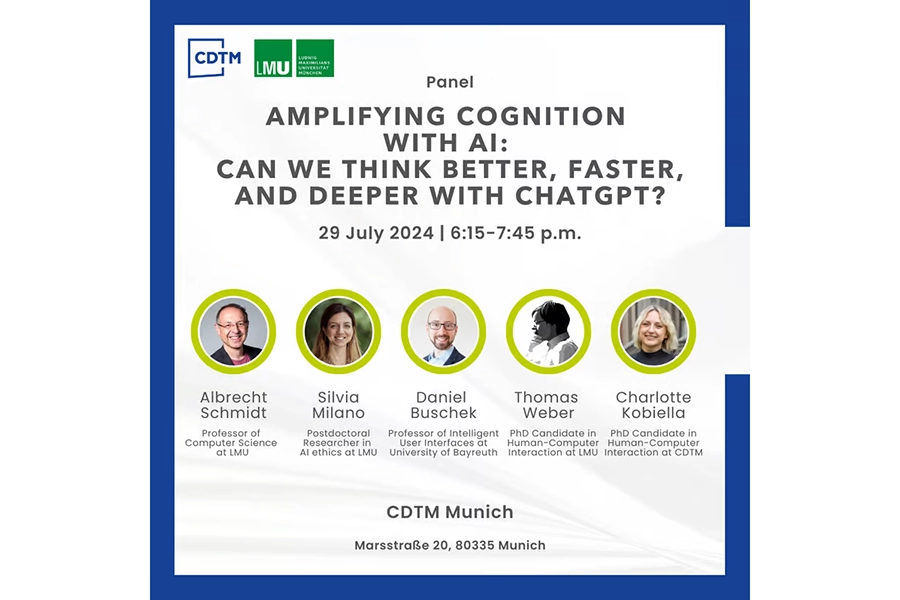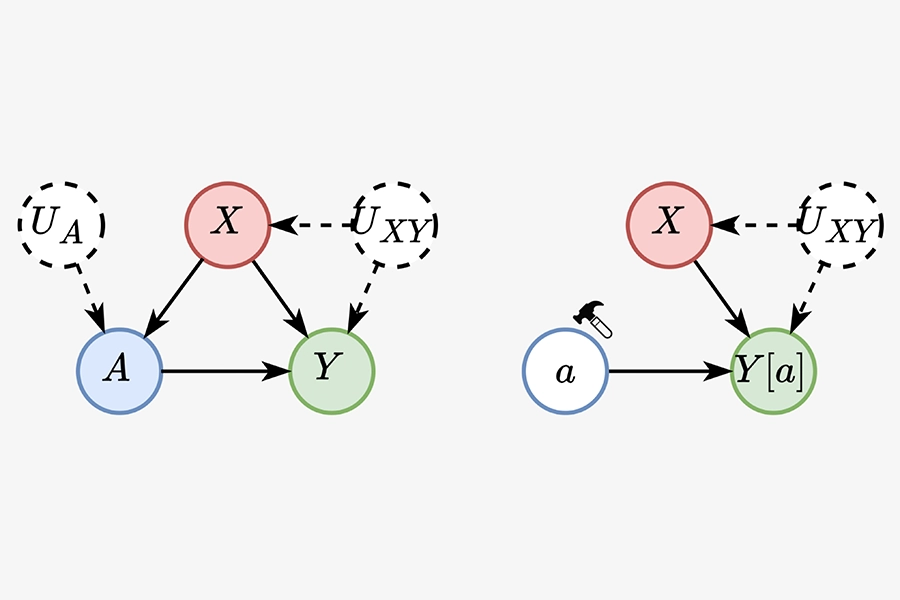29
Jul

Panel • 29.07.2024 • CDTM, Marsstraße 20, 80335 Munich
6:15 pm - 7:45 pm
Can we think better, faster, and deeper with ChatGPT?
Panel discussion with our PI Albrecht Schmidt at the CDTM in Munich
Join our PI Albrecht Schmidt and other leading researchers for an engaging panel discussion on the future of Artificial Intelligence (AI) at the CDTM in Munich. They will come together to explore how AI can(not) amplify our cognition. Can we think …
06
Aug
-
07
Aug

©MCML / TUM Think Tank
TUM Open Day - Workshop • 06.08.2024 - 07.08.2024 • See course information
9:30 am - 4:00 pm
TUM Entdeckerinnen: STEM Experience at University
Workshops for the summer vacation
This year 29 free projects are available exclusively for girls and young women at the summer program “TUM Explorers: STEM Experience at University”. As part of the program, the chair of our PI Matthias Althoff will be represented with the workshop …
07
Aug

Workshop • 07.08.2024 • LMU Munich, Professor-Huber-Platz 2, W201
11:00 am - 8:00 pm
3rd MCML Workshop on Causal Machine Learning
Organized by our PI Stefan Feuerriegel and his team
Causal inference has become highly important in many fields, such as medicine or marketing, and has received increasing attention from researchers in machine learning in recent years. The MCML Workshop in Causal Machine Learning invites causal ML …